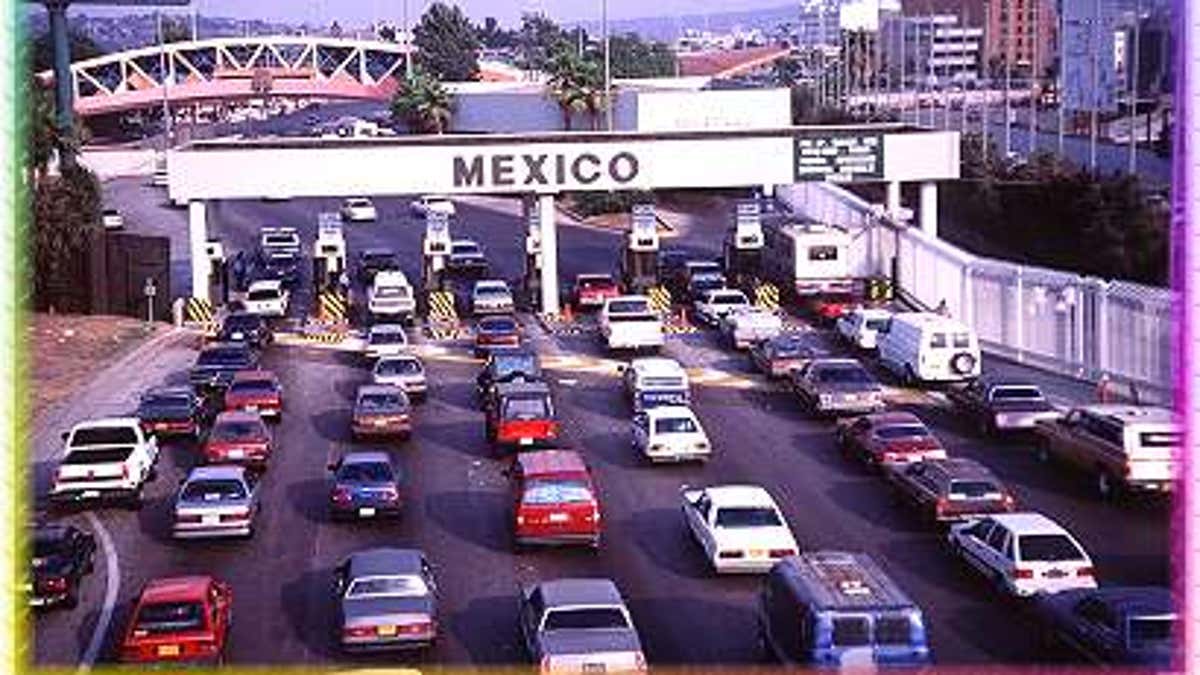
Tijuana border crossing between the U.S.-Mexico border near San Diego, Calif. (tijuana.com)
The number of Mexicans leaving home for the United States is just about canceled out by the number returning, according to statistics provided by the Mexican government.
The statistics suggest that a tough job market north of the border, combined with the inherent risks of making the trek, have for now dissuaded many Mexicans from crossing into the United States.
It's unclear how accurately the Mexican government tracks both legal and illegal immigration into the United States.
The 2010 U.S. Census noted that the Mexican-origin population increased by 54 percent between 2000 and 2010, from 20.6 million to 31.8 million, and accounted for about three-quarters of the 15.2 million-person increase in the Hispanic population over the decade.
The Census Bureau doesn't distinguish between legal and illegal immigrants.
But according to a Congressional Budget Office study release earlier this year, Mexicans are the largest segment of legal permanent residents in this country -- about 26 percent, or 3.27 million of 12.6 million legal permanent residents.
CBO also notes that about 62 percent of all undocumented residents in the U.S. -- about 11 million total -- are from Mexico.
Still, U.S. statistics on Border Patrol arrests suggest an ebbing tide of illegal crossings.
According to the Department of Homeland Security, the number of arrests of illegal immigrants from Mexico fell from 1.6 million in 2000 to about 400,000 in 2010. The number reportedly fell to about 300,000 this year.
Ira Mehlman, a spokesman with the Federation for American Immigration Reform, said the data over the past few years show "some indication that there has been a slowing."
He said the primary reason is likely the state of the economy. But Mehlman, whose group advocates for a tough approach to illegal immigration, said the numbers will not stay down forever.
He added that the recent slowdown proves that illegal immigration is a "controllable phenomenon" -- for now, the economy may have the biggest influence, but Mehlman said more enforcement will be needed in the future.
The Los Angeles Times, which first reported the data, interviewed sources in Mexico who described the drop-off as temporary. Susana Guerra, an immigration official in the state of Guanajuato, told the Times the decline is a "spasm."
With unemployment in the U.S. persistently at or above 9 percent, fewer jobs are available than there were when immigration was at its height. Illegal immigrants also face the dangers of dealing with drug cartels along the border, not to mention the grueling trek and possibility of arrest on the U.S. side.
While the Obama administration and several border states are moving to crack down on illegal immigration, some in Congress remain concerned that new policies will give illegal immigrants currently living in the United States a pass.
The Department of Homeland Security is adjusting its policy to allow officials to prioritize deportation cases -- putting low-level offenders on the backburner.
Though fewer Mexico are heading into the U.S., the country's residents still make up the lion's share of immigrants already in the United States.











































